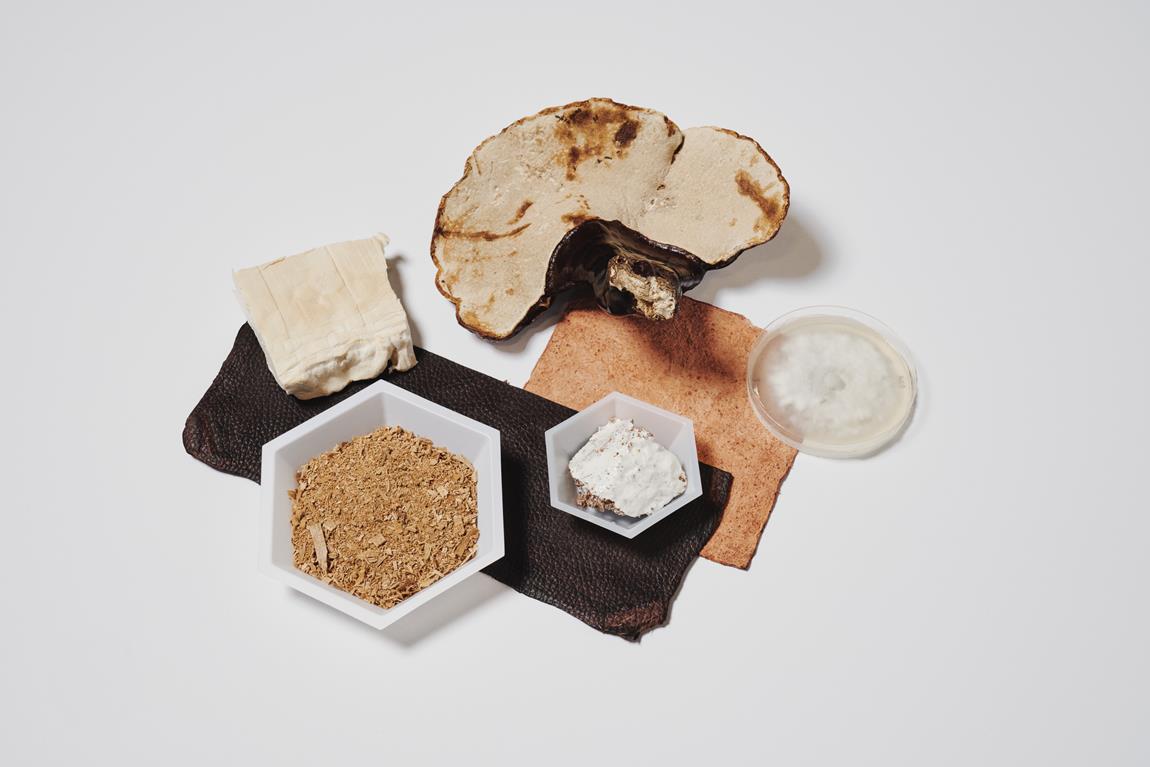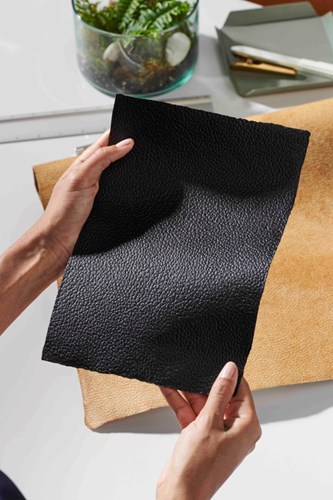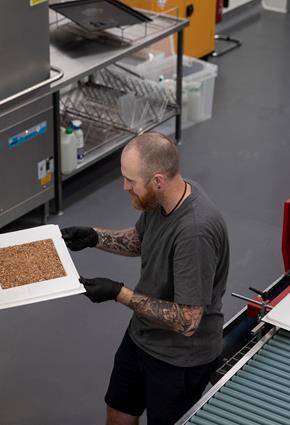With the launch of our Seedlip Spice 94 Mycelium Gift Set, we have Mushrooms on our mind. So, for our latest installment of Six with Seedlip, we turned to a leader in the space of sustainable innovations: Bolt Threads.
Brand Strategy Director, Marilla Perkins, shares how Bolt Threads draws inspiration from Nature to drive their Research & Development, and more specifically how they came up with newly launched Mylo™ mushroom leather for which they’ve partnered with the likes of Stella McCartney, Adidas, Lululemon and others.
I. What does nature mean to Bolt Threads?
Ask one of Bolt’s scientists and they might say that nature is the circular ecosystem of organisms that has evolved over billions of years. We see nature as the ultimate teacher and the inspiration for everything we do when we are developing new materials. Nature is ever-evolving and has incredible diversity and resilience. It is our role not only to take inspiration from its beauty and functionality, but also to create new materials that have a low environmental footprint to help preserve its forests, oceans, all its wonders.
II. Tell us more about your Mylo™ material. How does the underground structure of mushrooms become an alternative for leather & goods?
Mylo is everything you love about leather, without everything you (and the planet) don’t. It’s a mycelium-based alternative that can be used just like animal and synthetic leathers, and is currently being developed into products by our partners including Adidas, Lululemon, and Stella McCartney.
Mycelium is this incredible organism that we say is so strong it literally holds the planet together. For billions of years, it has grown beneath our feet and under the forest floor serving as an ecological connective tissue. It’s the root structure of mushrooms, and is a sprawling, infinitely renewable web that threads through soil and provides nutrients to plants and trees – kind of like nature’s world wide web.
Our scientists and engineers have developed a state-of-the-art process to grow and transform the mycelium into a soft, supple, bio-based alternative to animal and synthetic leather. We believe that with scale, Mylo has the potential to make a real impact in the world, a positive shift in the environmental footprint of the fashion and footwear industries.
III. What challenges do you often find yourselves up against as a company?
The first thing that comes to mind is speed. There is no magic bullet to become a more sustainable society; we need many sectors, technologies and visionaries working together and this work takes time. At Bolt, we can see a better future in front of us, and our job is to work as quickly as we can with the right partners to help make that future a reality.
IV. Sustainability is a word widely used, with varying degrees of meaning. What does sustainability mean to Bolt Threads?
We use the word sustainability since it has become an easily understood concept, but you’ll actually often hear our CEO, Dan Widmaier, say something like sustainability isn’t sustainable, meaning we can’t continue on the path we are currently on.
As our population grows by over 80 million every year, we face an ever-growing constraint on natural resources. Clean air, water and land are all necessary for human survival. But too many industries have practices that poison those resources, create excess waste, use land inefficiently, and have a huge carbon footprint all of which contribute to climate change.
We need to evolve how things are made and how people eat. We need new ways to meet the needs and wants of consumers that don’t exact such a devastating toll on our environment and our health. And we need those innovative solutions now.
We are very optimistic about the future and are pragmatic and measured in the solutions we create, like Mylo. This approach is why when talking about Bolt’s materials we often talk about impact and how we are both measuring and lowering our environmental impact with the work we do.
V. What was the reasoning or motivation behind creating the Bolt Glossary to explain those ‘better materials for a better world’?
The motivation was two-fold. First it was to leverage the incredible knowledge of the scientists and corporate responsibility experts at Bolt to educate and empower our community to navigate the nuanced conversations in sustainability. What is a life cycle assessment? What is biodegradation? And second, it was to connect with our community and develop a shared vocabulary to foster meaningful conversations about these subjects. So much of the sustainability conversation is confusing, complex, or at its worst, greenwashing, and we want to break down the fundamentals and give people the tools they need to have more informed discussions.
VI. With whom are the founders of Bolt, Dan Widmaier & David Breslauer, most likely to have a cocktail?
While there are many people they’d love to share a cocktail with in an “any person in history dead or alive” situation, Melinda Gates and Queen Elizabeth come to mind – perhaps on zoom during a Bolt happy hour.





